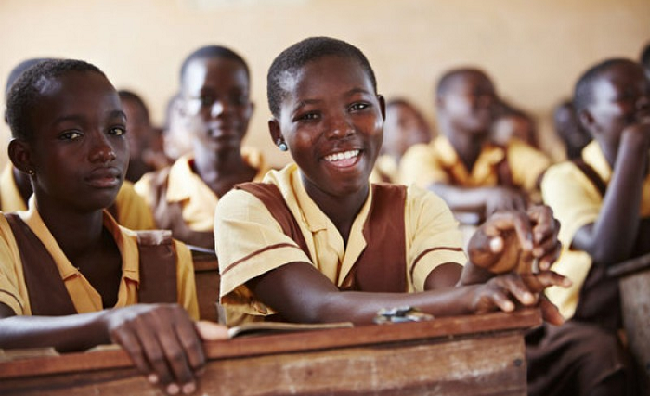A fifteen-member Girl-Child Education task force has been inaugurated in Cape Coast with the mandate to champion girl-child education in the Central Region.
The task force is expected to among others provide education and training to young girls to speedily increase enrollment, performance and transition into higher levels of education in the region.
It has also been tasked with the responsibility of providing direct interventions through the payment of fees of students from poor homes, supply of uniforms and the identification of peculiar problems and to help address them.
The team members include representatives from the Regional Girls Education Unit (RGEU), the Ghana Health Service (GHS), the Department of Gender, the Hunger Project and Camfed.
Members of the advisory board include Ministry of Education (MoE), Ghana Education Service (GES), Transforming Teacher Education and Learning (T-tel), Department of Gender and Social Welfare, Centre for Gender Research Advocacy and Documentation (CEGRAD), Plan International, USAID- Partnership for Education, Action Aid, Camfed, Varkey Foundation and Go Girl Ghana (GGG).
Their activities would be funded by the United Kingdom (UK) Department for International Development (DFID) through Camfed-Ghana.
Mr David Afram, Regional Director of Education, who inaugurated the taskforce, said GES established the Girl Education Unit (GEU) in 1997 to promote girl-child education and has since afforded many females the opportunity to climb the academic ladder to occupy major positions of national interest.
He said their activities formed part of the national efforts towards attaining the United Nations (UN) Sustainable Development Goal (SDGs) 4 and 5 and the Gender in Education Policy (GEP) aimed at promoting inclusive and quality education for gender equity and empowerment of girls.
Mr Afram said the taskforce would work to expand educational opportunities for girls through advocacy and provide financial support to brilliant but needy young girls.
“The surest way to break the bondage of poverty is through the provision quality, accessible and affordable education to young girls as a fundamental human right but not a privilege†he said.
The Regional Director advised parents to provide the needs of their girl-child such that they can reject sexual advances by men for favours.
Mrs Nora Afful, Regional Girls Education Director, said women are seriously lagging behind in many spheres of life and called for support mechanisms to enable them rub shoulders with their male counterparts.
She urged parents to disabuse their minds of the notion that a well-trained girl-child was only good for the kitchen and invest their resources in education to enable them pursue their dreams.
Mrs Afful urged the various assemblies to build consensus with traditional leaders and invoke their bye-laws to reduce teenage pregnancies, especially in the rural areas.
Mrs Gifty Nordzi, Ajumako-Enyan-Esiam Director of GEU, who spoke on behalf of the team, applauded the Regional Education Directorate for bringing stakeholders in the region to support girl-child education and their welfare.
Mrs Nordzi called for support and unity from members to enable them achieve their objectives.
Â
Credit: GNA





